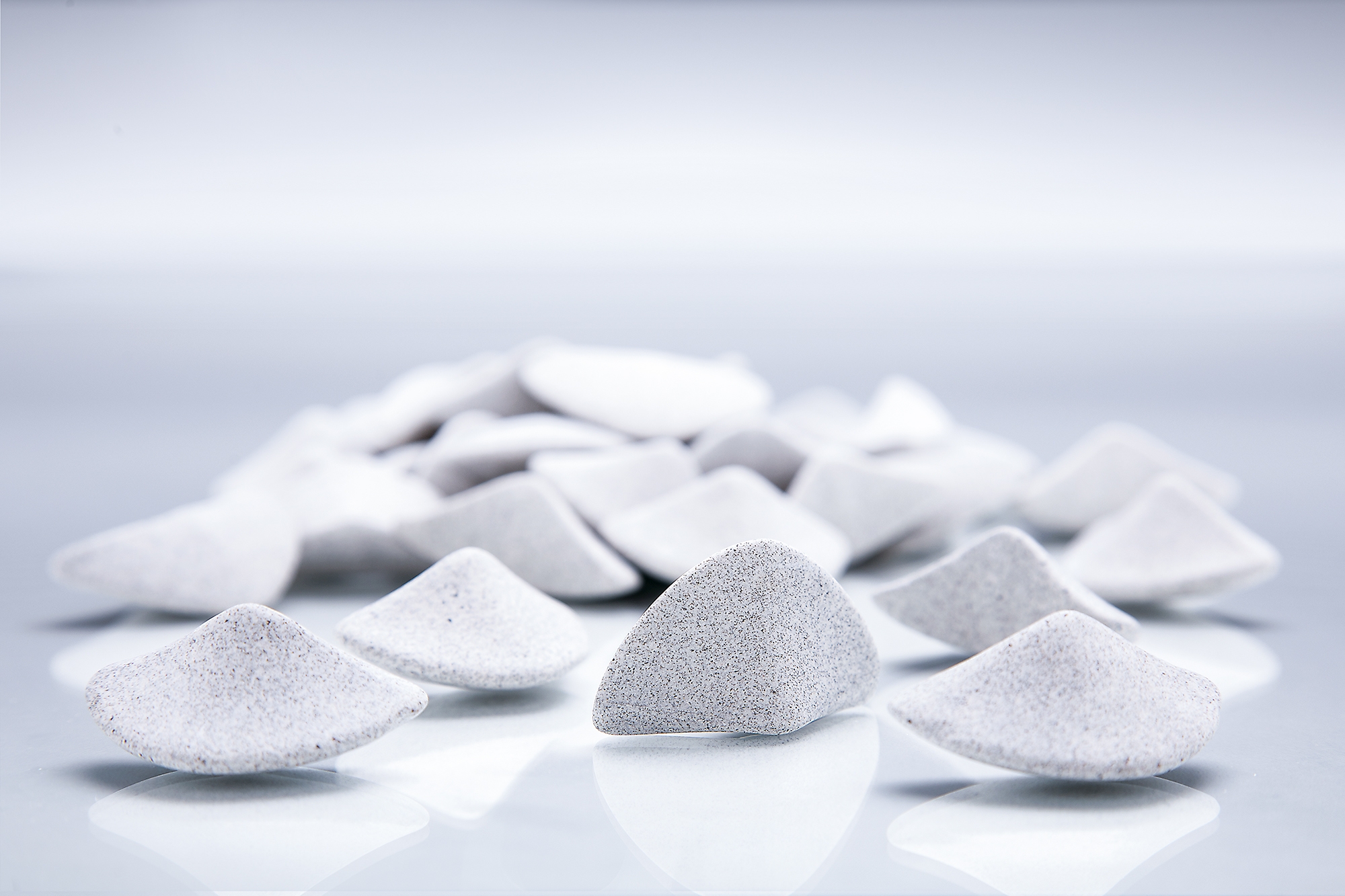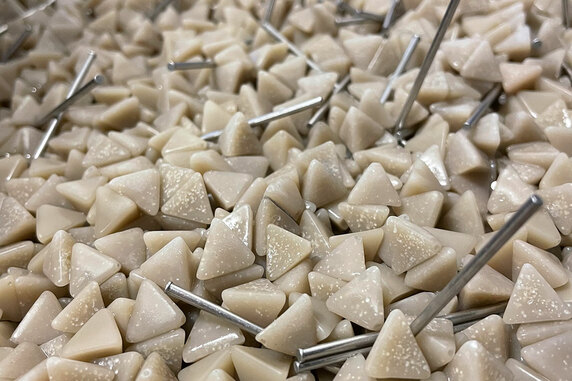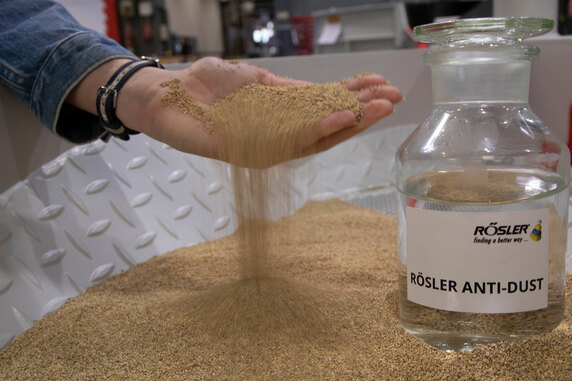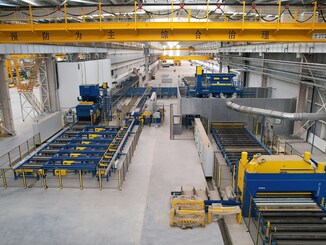
When it comes to ensuring the quality of products through component-specific surface finishing, vibratory finishing is often the method of choice. With consistent research and development, not only in machine technology, but also in process equipment, Rösler Oberflächentechnik GmbH repeatedly sets benchmarks.
From deburring and edge rounding to grinding and polishing and the production of specific surface effects, vibratory finishing technology can be used to perform a wide variety of machining tasks on bulk materials and individual parts. High demands on quality, process reliability, traceability and cost-effectiveness have to be met.
In addition, resource efficiency and sustainability are moving to the center of companies’ focus. And last but not least, the increasing automation and digitalization of production processes also require correspondingly adapted solutions in vibratory finishing technology.
For decades, Rösler Oberflächentechnik GmbH has been responding to these challenges with consistent research and development in machine, process and automation technology as well as in process equipment, which the company also produces itself.
“We deal very intensively with the trends and requirements of the various industries and markets. We translate these findings in systematic development work into innovative products that offer our customers tangible added value and expand the range of applications for vibratory finishing technology,” says Rüdiger Böhm, Global Manager R&D at Rösler, describing his company’s approach.

© IMG Rösler
Unique shape makes previously impossible possible
One such innovation is the MultiShape ceramic grinding wheel. It differs from all previously available grinding wheels on the market by its patented shape without plane-parallel surfaces. On the one hand, the special design counteracts jamming, which impairs machining, especially with complex-shaped workpieces, and can often only be removed manually.
On the other hand, the shape with rounded surfaces on all sides enables workpieces that previously could not be machined or could only be machined with great effort in vibratory finishing processes to be deburred, edge-rounded and ground in a process-safe and efficient manner. These include components with areas that are difficult to access, for example radii, undercuts, notches and slots, such as those found in stamped and bent parts. Both effective and homogeneous external and internal machining can be achieved with the unusual ceramic grinding wheel, even for tube sections and components with scooping geometries such as housings and deep-drawn parts.
In addition, faster circulation behavior, higher movement activity and optimized material removal compared to classic ceramic grinding tools enable up to ten percent shorter machining times. This makes an important contribution to increasing productivity and profitability. In use, the MultiShape also impresses with even wear. This very good dimensional stability of the grinding wheels allows longer use, which has a positive effect on operating costs. The grinding intensity can be adapted to the application by different ceramic qualities.

© IMG Rösler
Decelerated foam
Foam formation is a side effect that always occurs in vibratory finishing processes with plastic abrasives, even with so-called foam-reduced variants. The foam is problematic because it acts like a buffer between the components and the abrasive particles and thus reduces the removal or grinding effect. This leads to limited process reliability; the required result can no longer be guaranteed within the defined processing time.
In addition, the foam, which is enriched with abrasion and ultra-fine particles, deposits on the parts, resulting in contamination on the machined workpieces. In addition, foam deteriorates the treatment quality of the process water, so more compound has to be used and the water has to be replaced earlier. And last but not least, foam escaping from the equipment pollutes the working environment.
Up to now, attempts have been made to counteract foam formation with additives. However, with only moderate success at additional cost and reduced sustainability. The Rösler development department has solved this problem with a foam-free formulation: the so-called N-variant. “Prior to the product launch, extensive field tests with various pilot users showed that the foam-free plastic abrasive bodies have identical grinding properties and performance as the previous variants,” promises Christian Höhn, head of the technology management department for vibratory finishing at Rösler.
The tests also showed that the vibratory finishing process runs much more stably with the improved grinding wheels and that the required result is achieved homogeneously in shorter machining times. This positive effect on profitability and sustainability is further increased by a longer service life of the grinding wheels and process water as well as reduced compound consumption.
“Various users have so far switched to a ceramic grinding wheel because of the disruptive foam formation. For these companies, the foam-free variant is an alternative to optimize their processes,” notes Christian Höhn. All plastic grinding tools from the extensive Rösler program are available in the foam-free N version.
Dry dust-free with granules
The third new development of 2021 significantly reduces the dust generated during drying with natural granules such as corn meal. The liquid, easy-to-dose additive Anti-Dust binds the dust produced even in small quantities. Depending on the operating time and workpieces, the additive can simply be metered in manually or automatically.
Anti-Dust is used in combination with the granules in drying processes of metal and plastic parts and ensures spotless dry surfaces without affecting the drying performance. At the same time, dust residues on the workpieces, in the dryer and the surrounding area are minimized. It thus contributes to a clean, low-dust working environment. “In terms of environmental compatibility, Anti-Dust is also convincing; it is of purely vegetable origin and food-safe,” notes Rainer Schindhelm, head of the Process Equipment Production division at Rösler. Further increasing the performance of vibratory finishing technology while improving sustainability and reducing CO2 emissions is also the focus of Rösler’s new developments for 2022. To this end, various solutions from the fields of machine technology and process equipment are already undergoing field trials at customers.
About Rösler
For more than 80 years, Rösler Oberflächentechnik GmbH has been active as an owner-managed company in the field of surface processing. As an international market leader, we offer a comprehensive portfolio of equipment, process materials and services for vibratory finishing and shot blasting technology for a wide range of industries. The selection from approximately 15,000 process agents, which are specially developed in our global Customer Experience Centers and laboratories, also follows the specific customer requirement. Under the AM Solutions brand, we also offer a wide range of solutions and services specifically for additive manufacturing. As a central training center, the Rösler Academy imparts practice-oriented seminars on the topics of vibratory finishing and blasting technology, lean management and additive manufacturing. In addition to the German plants in Untermerzbach/Memmelsdorf and Bad Staffelstein/Hausen, the Rösler Group includes 15 subsidiaries and approximately 150 sales representatives worldwide.
Web:
www.rosler.com


